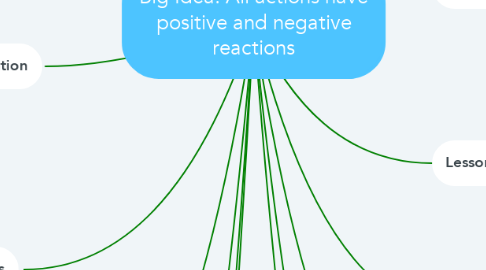Big Idea: All actions have positive and negative reactions
by Chelsea Allen

1. Lesson 3: First Fleet arrival in Australia
1.1. Historical skills: Chronology, terms and concepts, Perspectives and interpretations, Historical questions and research, Explanation and communication
1.2. Students examine an event of colonisation from the POV of participants, and consider the perspectives from the current time
2. Lesson 4: Convict Life
2.1. Historical skills: Historical questions and research, analysis and use of sources
2.2. Children explore the daily existence for convicts in Australia: work, conditions, punishment, food, clothing etc.
2.3. Students will research and create a convict identification card on a real convict.
3. Lesson 8: Powerpoint Creation
3.1. Historical skills: Analysis and the use of sources, Historical questions and research, explanation and communication
3.2. Students are to research a person directly involved in the events of the first fleet. This research should then be compiled to form a biography via powerpoint presentation.
4. Critical literacies
4.1. Questioning meanings and perspectives within texts
4.2. Understanding inequalities in human rights
4.3. Critical analyse texts referencing culture and perspectives
4.4. Examining oppression, privilege and dominance in Australian history
5. The classroom setup
5.1. The classroom environment
5.1.1. Using concrete materials
5.1.2. Incorporate different language (Noongar)
5.1.3. Using collaborations and peer-tutoring
5.2. The educator
5.2.1. Support all children's opinions
5.2.2. Know the content you teach
5.2.3. Be gender neutral
5.2.4. Challenge student thinking through scaffolding and open-ended questions
5.2.5. Use people first and inclusive language
6. Inquiry stages (5 E's)
6.1. Engage
6.1.1. Diagnostic assessment
6.1.2. Classroom collaborative activity/Videos
6.2. Explore
6.2.1. Investigate and research
6.2.2. Defintions
6.2.3. Exploring key questions
6.2.4. Hands-on activities
6.3. Explain
6.3.1. Students explain the information found
6.3.2. Inquiry questions
6.3.3. Brainstrorm
6.4. Extend
6.4.1. Students independently research summative assessment question
6.4.2. Apply learnt knowledge
6.5. Evaluate
6.5.1. Students reflect on knowledge, learning process and assessments
6.5.2. self-assessments, peer-assessments and relfection
7. Lesson 6: Impact of colonisation on Indigenous Australians
7.1. Brainstorm the impact British colonisation had on the Aboriginal and Torres Strait Islanders
7.2. Get students into 5 groups, and students make a poster on either disease, dispossession, conflict, loss of traditional resources or loss on cultural identity and how this impacted Indigenous Australians during the First Fleet.
7.3. Historical skills: Historical questions and research, analysis and use of sources
8. Lesson 5: Expanding the colony
8.1. Students will research and create a brainstorm of how colonists could have worked with Indigenous Australians to create a better colony. Students will present this to the class.
8.2. Historical skills: Historical questions and research, analysis and use of sources
9. Lesson 1: Life in Britain during the 1700s
9.1. Historical skills: Chronology, terms and concepts, Explanation and communication
9.2. Write a journal entry as if they are a convict in Britain during the 1700s. Crime, emotions etc.
9.3. Students can share their diary entry with the class.
10. Lesson 2: The First Fleet
10.1. Historical skills: Analysis and use of sources, Perspectives and interpretations
10.2. Students research one of the 11 ships from the first fleet. Present this in a creative writing format.
11. Lesson 7: Role Play
11.1. Historical skills: Perspectives and interpretations, Explanation and communication
11.2. Students select an event from Indigenous Australian colonisation history and role play an Indigenous stakeholder within the event and how it impacted them.
12. Lesson 9: Powerpoint Presentation
12.1. Historical skills: Perspectives and interpretations, explanation and communication
12.2. Students are to present their powerpoints using multimedia forms- pictures, voice overs, digital effects.
13. Critical numeracies
13.1. Measurement: using appropriate scales and lengths in maps
13.2. Number skills: calculating diversity loss
13.3. Data displays
13.4. Mapping skills
13.5. Ordering numbers
14. Considerations for accessibility and inclusitivity
14.1. Extra time to finish assessments
14.2. Completing activities in small groups with AIEO and educator
14.3. Learning packs for struggling students
14.4. Activities in accordance with student interest
14.5. Assessments done throughout the unit
14.6. Front loading: differentiation language and comprehension used for strong and weak students
15. Curriculum Content
15.1. ACHASSK084
15.2. ACHASSI082
15.3. ACHASSI074
15.4. ACHASS076
15.5. Cross Curriculum Priorities: Indigenous histories and culture

